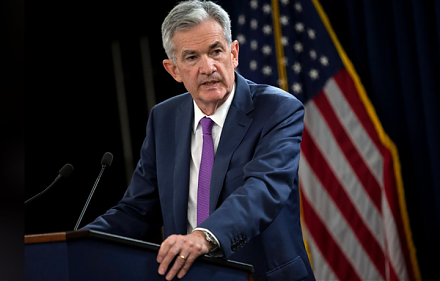

2018-09-23 08:37:00 Sun ET
stock market competition macrofinance stock return s&p 500 financial crisis financial deregulation bank oligarchy systemic risk asset market stabilization asset price fluctuations regulation capital financial stability dodd-frank
Bank of America Merrill Lynch's chief investment strategist Michael Hartnett points out that U.S. corporate debt (not household credit supply or bank capital shortage) can cause the next financial crisis.
U.S. public corporations have gradually accumulated more than $6 trillion debt with low interest rates since the global financial crisis from 2008 to 2009. This corporate debt binge helps fund the recent recovery in new capital investment and equipment, full employment, and stock buyback in America.
Corporate default rates are minuscule, and U.S. companies now sit on hefty cash stockpiles primarily due to robust U.S. economic output gains and corporate tax cuts under the Trump administration. At some inflection point, however, economic growth and corporate income may start to slow down. U.S. companies then would have less firepower to pay back debt, and it is not easy for these companies to roll over their debt in due course. Debt-laden companies would be vulnerable to higher costs of capital as the Federal Reserve continues the current interest rate hike.
These high costs of capital can translate into a new corporate credit crunch, which adversely affects both employment and capital investment as the U.S. economy slides into an economic recession.
If any of our AYA Analytica financial health memos (FHM), blog posts, ebooks, newsletters, and notifications etc, or any other form of online content curation, involves potential copyright concerns, please feel free to contact us at service@ayafintech.network so that we can remove relevant content in response to any such request within a reasonable time frame.
2019-01-27 12:39:00 Sunday ET

British Prime Minister Theresa May faces her landslide defeat in the parliamentary vote 432-to-202 against her Brexit deal. British Parliament rejects the M
2023-02-14 09:31:00 Tuesday ET

Eric Posner and Glen Weyl propose radical reforms to resolve key market design problems for better democracy and globalization. Eric Posner and Glen Weyl
2023-06-21 12:32:00 Wednesday ET

Michael Sandel analyzes what money cannot buy in stark contrast to the free market ideology of capitalism. Michael Sandel (2013) What money
2018-10-03 11:37:00 Wednesday ET

Fed Chair Jerome Powell sees a remarkably positive outlook for the U.S. economy right after the recent interest rate hike as of September 2018. He humbly su
2024-10-14 11:33:00 Monday ET

Stock Synopsis: Video games continue to take both screen time and monetization from many other forms of entertainment. We are broadly positive about the
2018-09-25 10:35:00 Tuesday ET

Sirius XM pays $3.5 billion shares to acquire the music app company Pandora. This acquisition would form the largest audio entertainment company worldwide.